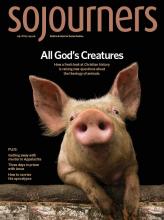The world is falling apart.
Admittedly, the world has always been falling apart—since Christ’s resurrection, we’ve been living in the last age, and the New Testament is full of an apocalyptic expectation—but in our modern world, we seem to be spinning apart even faster. In our pop culture, either “winter is coming” or zombies are. Robots who look just like us are threatening genocide or a perverse “Capitol” is forcing our kids to kill each other. How to Survive the Apocalypse, by Alissa Wilkinson and Rob Joustra, looks at this theme in modern culture and what it might tell us about ourselves.
This is a book written by college professors, and I mean that in the best possible way. They define their terms, keep us engaged, and push us toward engaging the world like the best professors do. And, like all good professors, they are honest about their ideological approach: They are strongly neo-reformed and use Charles Taylor’s opus A Secular Age to interpret the culture that they address.
Indeed, How to Survive the Apocalypse is basically a fleshing out of Taylor’s description of the modern age (and its difference from a pre-modern era) through fictional ends of the world. Wilkinson and Joustra examine individualism and autonomy, a quest for and skepticism of authenticity, and the appropriate source of power (the questions and obsessions that Taylor sees at the root of modernity) through a half-dozen TV and movie apocalypses and dystopias, ranging from The Hunger Games to Her. These questions press all the more in our age, in which we seem to have lost the transcendent.
Read the Full Article

